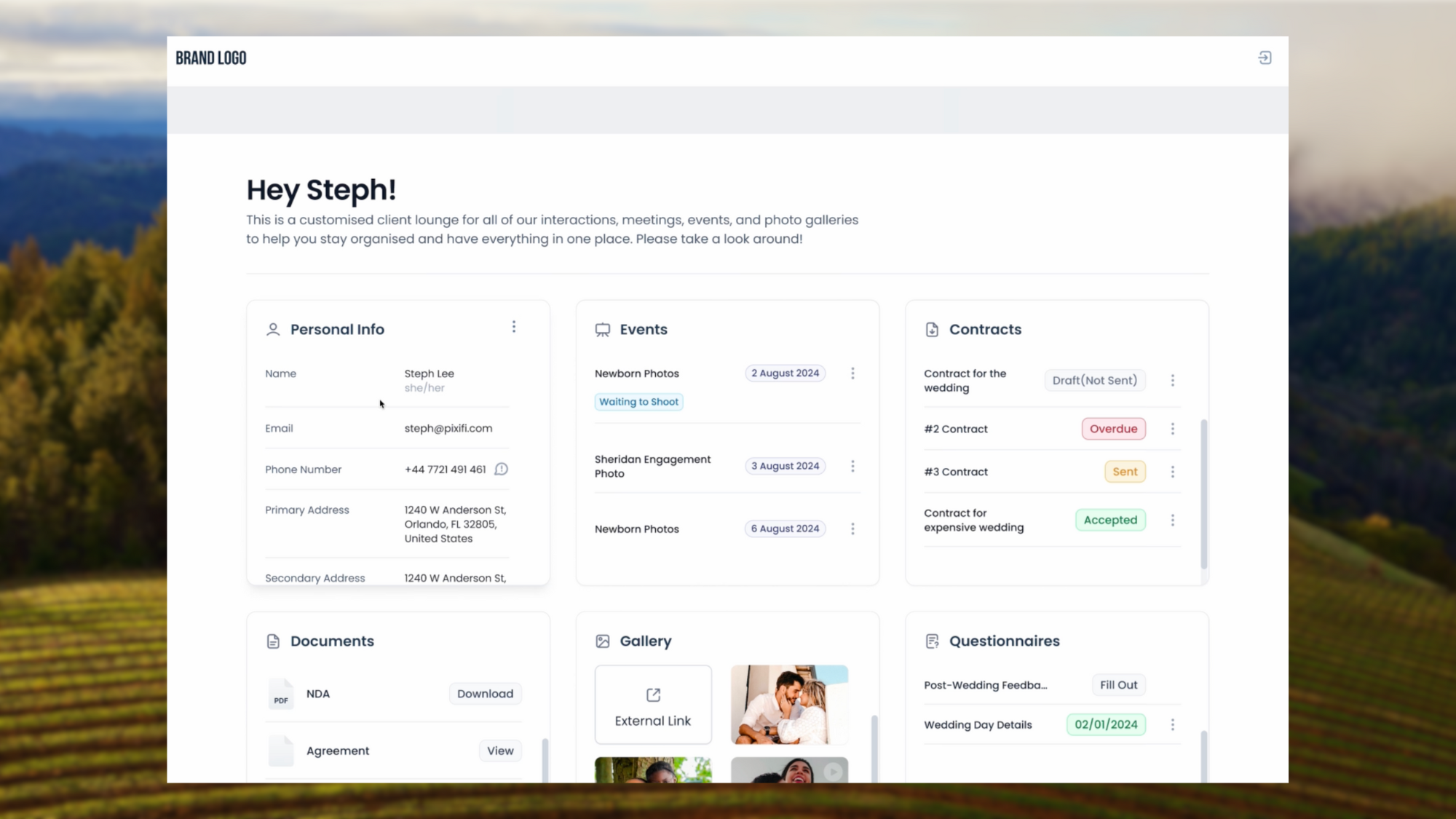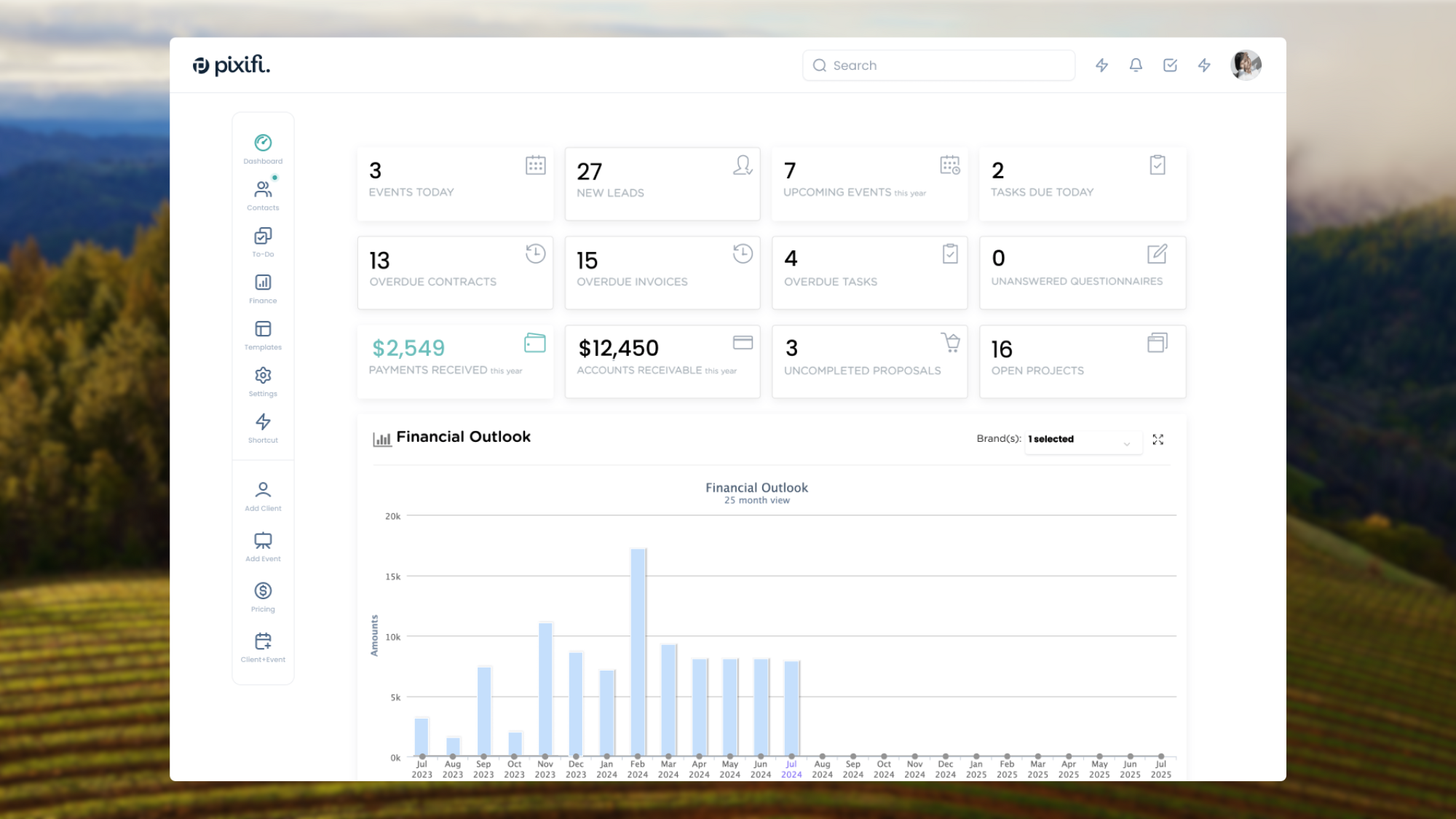CRM Onboarding: Simplifying the Transition to a New Software for Photographers
- Understanding the Importance of CRM in Photography
- Choosing the Right CRM Software for Your Photography Business
- Pixifi: The Ideal CRM for Photographers
- The CRM Onboarding Process for Photographers
- Overcoming Common Challenges in CRM Onboarding
- Experience Seamless Onboarding with Pixifi
- Maximizing the Use of Your New CRM Software
- Conclusion
Understanding the Importance of CRM in Photography
In today's digital landscape, using customer relationship management (CRM) software for photographers is vital for business success. Whether you specialize in wedding photography, portrait photography, or commercial photography, CRM software can help manage client relationships, streamline operations, and enhance customer experiences.
The Role of CRM in Business Management
CRM software serves as a centralized hub for photographers, storing important client information, tracking interactions, and managing preferences. This data helps photographers understand their clients better and tailor their services accordingly. CRM systems also manage leads, track sales opportunities, and monitor marketing campaigns, allowing photographers to stay organized and make informed business decisions based on real-time data.
Benefits of CRM for Photographers
Adopting CRM software offers numerous benefits for photographers:
- Improved Efficiency: Automates manual processes , freeing up time for creative work and customer service.
- Enhanced Client Communication: Provides seamless communication channels for easy client interaction and personalized messaging.
- Increased Sales: Identifies new sales opportunities and upsell/cross-sell services, driving revenue growth.
- Improved Client Retention: Sends automated reminders, personalized offers, and targeted marketing campaigns to foster loyalty and repeat business.
- Data-Driven Decision Making: Analyzes CRM data to identify areas for improvement and make strategic decisions.

Choosing the Right CRM Software for Your Photography Business
Key Features to Look for in CRM Software
When selecting CRM software for photographers, consider the following features:
- Contact Management: Robust capabilities for organizing and retrieving client information.
- Lead and Opportunity Tracking: Capture and track leads, manage sales opportunities, and measure marketing effectiveness.
- Marketing Automation: Features like email marketing, social media integration, and lead nurturing campaigns.
- Customization Options: Customizable fields , workflows, and reports to match your business requirements.
- Mobile Access: User-friendly mobile app or responsive web interface for on-the-go access.
Pixifi: The Ideal CRM for Photographers
Pixifi CRM is specifically designed with photographers in mind, offering a comprehensive suite of tools to manage client relationships, streamline workflows, and boost business efficiency. With features like automated invoicing, scheduling, and customizable workflows, Pixifi helps photographers save time and improve client communication. Its intuitive interface and powerful integrations make Pixifi an indispensable software for photographers looking to enhance their business operations.

The CRM Onboarding Process for Photographers
Once you've chosen the right CRM software for photographers, follow these steps for successful CRM onboarding :
Preparing for the Transition: What to Expect
Set clear expectations and communicate the benefits of the new CRM software to your team. Prepare for a learning curve and potential challenges, but with proper planning, you can minimize disruptions.
Step-by-Step Guide to CRM Onboarding
- Define Your Objectives: Outline your goals and expectations for the CRM software.
- Migrate Existing Data: Transfer client data to the new CRM system and update it as needed.
- Configure CRM Settings: Customize the CRM software to match your business needs.
- Train Your Team: Provide comprehensive training and hands-on practice sessions.
- Implement Workflows: Map out key workflows and set up automation and notifications.
- Communicate with Clients: Inform clients about the new CRM system and reassure them of enhanced service.
- Monitor and Refine: Regularly review the CRM system's performance and gather feedback.
Overcoming Common Challenges in CRM Onboarding
Addressing Technical Issues
If technical difficulties arise, contact the CRM vendor's customer support. Appoint an internal CRM champion to handle technical queries and provide ongoing support.
Ensuring Data Security During the Transition
Ensure the CRM system complies with data protection regulations. Implement data encryption, user access controls, and regular backups to safeguard client information.
Experience Seamless Onboarding with Pixifi
To make it easier for you to prepare for the transition and onboarding, you can check out how it looks with Pixifi. We offer a clickable onboarding prototype that demonstrates each step of the process. This will help you understand how seamlessly you can adapt to the new CRM and efficiently manage your photography business with Pixifi.
Maximizing the Use of Your New CRM Software
Best Practices for CRM Usage in Photography
- Consistently Update Client Information: Maintain accurate client records.
- Nurture Client Relationships: Use automation to send personalized messages and stay engaged with clients.
- Analyze CRM Data: Regularly review CRM data to refine business strategies.
Continuous Learning and Improvement with CRM
Encourage continuous learning and exploration of new CRM features. Stay updated on CRM trends and best practices to drive your business forward.

Conclusion
CRM onboarding simplifies the transition to new software for photographers, enhancing client relationships, streamlining operations, and driving business growth. By choosing the right CRM software, following a step-by-step onboarding guide, and overcoming challenges, photographers can maximize the benefits of their new CRM system.
Frequently asked questions
More from Pixifi











